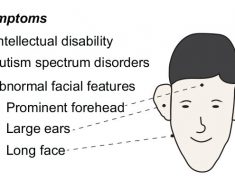Jamie Oliver, 44, has been open about having dyslexia – a common learning difficulty that can cause problems with reading, writing and spelling. But taking the positives from the disorder, the chef has said his dyslexia can be an inspiration to kids who are struggling at school.
READ MORE
-
 Jack P Shepherd health: Coronation Street star’s condition
Jack P Shepherd health: Coronation Street star’s condition
In an interview with vlogger and CBBC star Nikki Lily, Jamie said: “I did really badly at school with dyslexia, and to be honest I still struggle with it a bit today. I’ve had to learn little skills to get away with it.
“I only read two narrative books and that was a struggle. But luckily I had cooking – and that saved me. Every kid just wants a pat on the back, and a well done.
“I came out of school with an A in Art and a C in Geology, and everything else was pretty much ungraded.
“But now I’m the second biggest author in Britain. I think I can be an inspiration to kids who are having a rough time at school.”

It’s estimated up to one in every 10 people in the UK has some degree of dyslexia.
Dyslexia is a lifelong problem that can present daily challenges, but support is available to help those with the problem be successful at school and work.
Symptoms of dyslexia
Signs of dyslexia usually become apparent when a child starts school and begins to focus more on learning how to read and write, according to the NHS.
The health body says a person with dyslexia may:
- Read and write very slowly
- Confuse the order of letters in words
- Put letters the wrong way round (such as writing “b” instead of “d”)
- Have poor or inconsistent spelling
- Understand information when told verbally, but have difficulty with information that’s written down
- Find it hard to carry out a sequence of directions
- Struggle with planning and organisation
What to do if you think your child may have dyslexia
The first step is to speak to their teacher or their school’s special educational needs co-ordinator about your concerns.
The NHS adds: “They may be able to offer additional support to help your child if necessary.
“If your child continues to have problems despite extra support, you or the school may want to consider requesting a more in-depth assessment from a specialist dyslexia teacher or an educational psychologist.
“This can be arranged through the school, or you can request a private assessment by contacting or a voluntary organisation that can arrange an assessment, such as a local dyslexia association.

READ MORE
-
 Andrea Bocelli health: How did the star go blind? Condition explained
Andrea Bocelli health: How did the star go blind? Condition explained
“Adults who wish to be assessed for dyslexia should contact a local or national dyslexia association for advice.”
How is dyslexia diagnosed
There are a number of tools available that can be used to help give an indication of possible dyslexic difficulties.
But dyslexia can only be formally diagnosed through a Diagnostic Assessment carried out by a certified assessor, explains the British Dyslexia Association (BDA).
It explains: “Screening tests are designed to give an indication of possible dyslexic difficulties. They are not a diagnosis.
There are many different types of screening tests; in an education setting some are delivered by computer, others need to be administered by a teacher/SENCo. Some just give an estimate as to whether the child/person is likely to have dyslexic difficulties. A few offer a more detailed profile of strengths and weaknesses, which help inform an appropriate teaching strategy.
“Where any screening test indicates a moderate or high probability of dyslexic difficulties, the best course of action is to follow up with a full diagnostic assessment. This would determine the precise nature of dyslexic and related difficulties.”

A Diagnostic Assessment is intended to confirm whether an individual has dyslexia or not.
The BDA explains: “It provides a confirmed diagnosis of dyslexia, as well as a clearer picture of the person’s strengths and weaknesses and their individual cognitive profile.
“The Diagnostic Assessment will be followed by a written report. This report will provide evidence of the individual’s dyslexic profile (if the individual has been confirmed as having dyslexia), signposting to other organisations or further assessments for specific learning difficulties (if required), and will include some recommendations about how to support the individual in the context of their study and/or day-to-day life.
“In some cases, other specific learning difficulties can be identified but this should be discussed when booking the assessment as not all assessors will have access to the same tests.”
Source: Read Full Article





